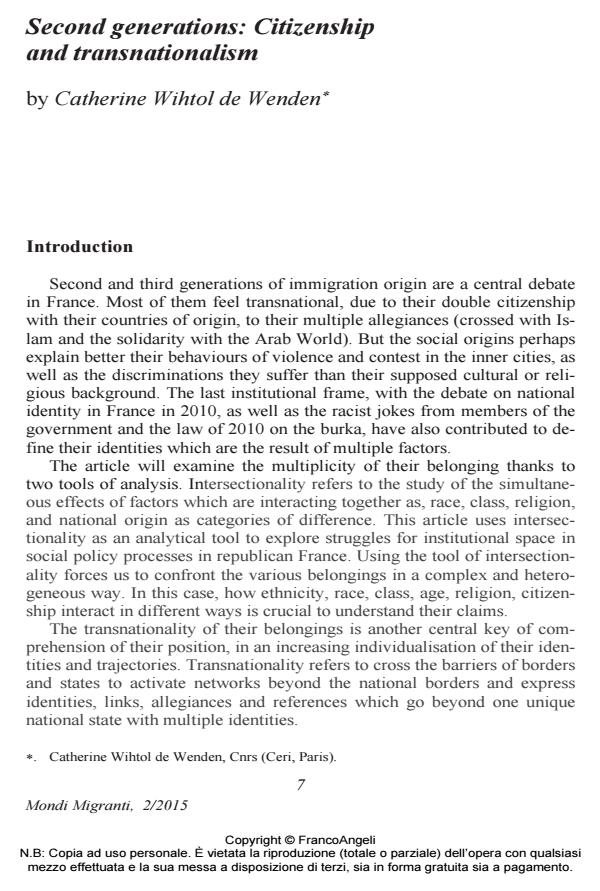Second generations: Citizenship and transnationalism
Journal title MONDI MIGRANTI
Author/s Catherine Wihtol de Wenden
Publishing Year 2015 Issue 2015/2
Language English Pages 25 P. 7-31 File size 83 KB
DOI 10.3280/MM2015-002001
DOI is like a bar code for intellectual property: to have more infomation
click here
Below, you can see the article first page
If you want to buy this article in PDF format, you can do it, following the instructions to buy download credits

FrancoAngeli is member of Publishers International Linking Association, Inc (PILA), a not-for-profit association which run the CrossRef service enabling links to and from online scholarly content.
This article deals with a socio-historical approach of "second generations" in France, a country which has a long story of immigration, but which has refused this historical past for a long time. Two tools of comprehension are used: intersectionnality of belongings which puts all elements of them in competition (Arab, Muslim, French, segregated in poor districts). But work has ceased to be a n identity of recognition. Transnationality, which crosses the frontiers and the walls through identity and plural relations. After an historical perspective of the phenomenon "second generations" in France, the article examines the various factors of identification which are competing together.
Keywords: Second generations, maghrebian immigration, France, Muslims, identity, discriminations; exclusion, citizenship, integration
- Young Generations' Activism in Italy: Comparing Political Engagement and Participation of Native Youths and Youths from a Migrant Background Veronica Riniolo, Livia Elisa Ortensi, in Social Indicators Research /2021 pp.923
DOI: 10.1007/s11205-020-02487-5 - The shifting of traditional understanding of citizenship due to international migration Angela Paparusso, Catherine Wihtol de Wenden, in Frontiers in Sociology 1568332/2025
DOI: 10.3389/fsoc.2025.1568332
Catherine Wihtol de Wenden, Second generations: Citizenship and transnationalism in "MONDI MIGRANTI" 2/2015, pp 7-31, DOI: 10.3280/MM2015-002001